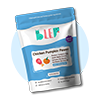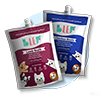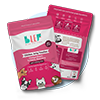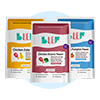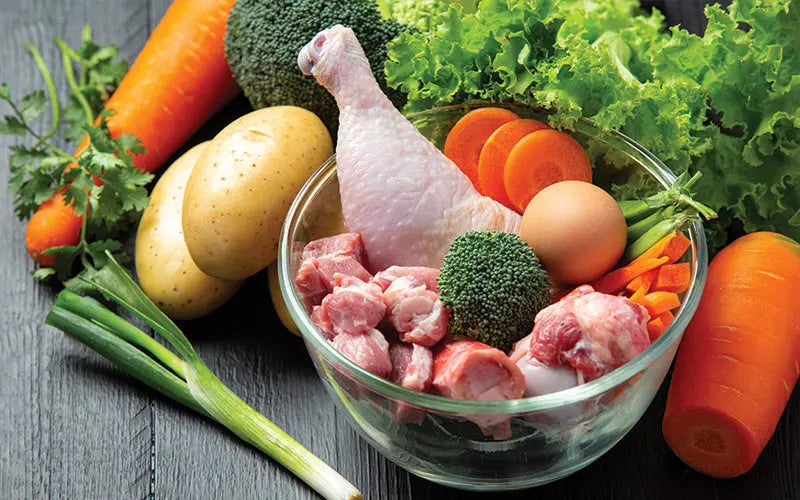Bringing a puppy home is a complete game-changer, because your life will now have to go through several changes — your home will need to be safe and comfortable for the new member, your schedules will have to be aligned with theirs, and your way of doing everyday things may need some adjustments as well. It is a solid commitment till the end of their life. However, the light and joy they will bring to your home will make it all worth it.
Like every new dog parent, you will make some mistakes, find obstacles in your path, and have to learn to deal with them. But don’t worry, because we’re right alongside you in this journey. So here are some of our essential tips for a new dog parent —
Tips for New Dog Parents Before Your Puppy Has Arrived
Make a budget:
The first thing you need to do when bringing a puppy home is to make a budget. The excitement and the nervousness will make you buy all kinds of things. But, remember, prioritising the essentials is key. There will be several expenses that you may not have factored in when your puppy finally arrives. So, don’t spend all your budget before that happens. Stick to a basic list of things, and plan slowly.
Puppy-proof the house:
This is an essential step, as your puppy will probably not be house-trained before they arrive. They will be curious and will need to explore their surroundings, so make sure that everything is safe around them. Put rubber protectors on sharp corners of furniture, remove any plants that are toxic to them, if you have stairs then get gates on them, if you have a balcony then put protective netting to make sure they won’t accidentally slip through, etc.
Adjust your schedule:
Your puppy is like a baby. In the beginning, they’ll need a lot of attention and care, so you will not be able to go about your life in the same way that you did previously. Slowly, you will find a way to plan your schedule according to them, but be prepared to make some changes. If you have trips planned, if you travel often, if you have to stay away from home for long hours, plan according to your pup, at least in the first few months.
Get some essentials:
Your puppy needs to eat, sleep, play, and relieve themselves daily and visit the vet frequently. These are the essential activities. So stock up on the things required to do these activities smoothly. Get a dog bed, crate, leash, dog tag, puppy pee pads, poop scooper, healthy dog food, and a few toys to begin with. Slowly, you’ll learn what they like and dislike, and then you can make changes to your list of essentials.
Look for a suitable vet:
Selecting a vet even before the puppy arrives is very important, because they’ll probably be your go-to person for a long time. Go through the details of the vets in your area and shortlist some who align with you — their location, timings, availability, consultation style, etc. Schedule appointments and have a chat with them to see who is the best fit for you and your puppy.

Tips for New Dog Parents After Your Puppy Has Arrived
Observe their behaviour:
Once your puppy has arrived, you’ll get a chance to interact with them full-time and see how they react to different things. This step is crucial because a lot of their behaviour in the initial months will give you clues as to their temperament, nature, things they excel at, things they struggle with, and any medical/behavioural condition that they may need support for.
Adjust your setup according to their needs:
Before your puppy arrived, your setup was tailored according to you and your expectations. Now that your puppy is here, the setup will have to be adjusted according to their needs. There are a number of options in the market for everything, so trial and error is the way to go. For example, to manage accidental pee/poop moments indoors, there are puppy pee pads, diapers, indoor grass patches, and even litter boxes made especially for dogs. But what your puppy will end up using is up to their nature and your training. Don’t make a huge commitment to any method in the beginning; let them decide.
Note vaccination requirements:
Puppy vaccinations are crucial for their health, as well as the health of everyone around them. These typically start at around 6-7 weeks of age, and if you’re getting your puppy from someone else, some of these medications may have already started. So, get a detailed history and mark all the dates and dosages that they will need. Some vaccinations are essential, and missing them may be fatal for your dog, so make sure you’re always up to date on these. To know more, you can check out this blog on puppy vaccinations.
Start their training:
The earlier they start training, the better chance there is that they will pick up on the dos and don’ts. You can begin by training them yourself training them to pee/poop outside, teaching them simple commands like ‘go’ and ‘stay’, and such. This not only helps you better manage your pup, but they also help in the mental and emotional development of your pup. Leash training is also important for when you take them out for socialisation or physical exercise. Once the basics are done, you can also consider some professional training sessions.
Be patient and kind:
This is training for you, because having a pup can be exhausting and sometimes even frustrating. Always remember, dogs are like small children - they will not always be able to understand you or communicate their needs with you. As a new pet parent, you will also fail to understand/do many things. So, being kind and patient with both your pup and yourself is the cornerstone of your bond with your furry one. It is natural to get disheartened at failure, but do not let that discourage you.
Have a backup human:
This may be hard to do for some but, if possible, try to appoint a human who will be able to take care of your puppy in case of an emergency. You can also keep a note of kennels and boarding houses that take puppies in at short notice, but to have a human who can watch them for a few hours or a day in case you get injured, late, or stuck somewhere can save both you and your pup a lot of anxiety.

Common Mistakes Made By New Dog Parents
-
Overtraining: Puppies and dogs in new environments need significant energy to gauge their surroundings and adjust to their new lives. So, giving them too much information or training them too hard can be detrimental, especially for puppies. Their minds and bodies are still growing, so they need a good balance of exercise and sleep. Pace yourself when training your puppy. If they look tired, let them rest.
-
Constant socialisation: It’s normal to want to introduce the puppy to everyone you know and love, and early socialisation actually helps pups a lot. However, don’t constantly bombard them with new people or take them to new places in the initial months. They need to get a basic understanding of how to behave in public first. Plus, puppies may need to sleep for 18 to 20 hours, so disrupting this routine will also harm them in the long run.
-
Schedule conflict: Some pet parents may think that they can go about their life exactly how they had before they brought a puppy home, but they’ll be setting themselves up for disappointment. You will have to change your schedule according to them, so make sure you plan important things carefully. Your pups can’t plan their lives, but you can plan yours. Keep realistic expectations and be flexible to change.
-
Excessive rewards: Rewards are crucial for promoting the right action or good behaviour. Therefore, these need to be used sparingly. If you give your dog treats very often, they will not have any incentive to learn anything new. Ration your pets’ treats and praises accordingly, especially when you’re training them initially.
-
Nutrition balance: New pet parents may not always be able to strike the right nutritional balance that puppies need. So, consult your vet, do your own research, and don’t take anything at face value. A balanced, wholesome diet is vital for a growing pup, as this will decide what their future looks like. Make sure they’re getting an adequate amount of protein, carbs, fats, macro- and micronutrients.

Looking to explore more healthy treats and care tips for your furry friend? Check out our other guides like Can Dogs Eat Apples?, Can Dogs Eat Blueberries?, Dog Food for Weight Loss, Raw v/s cooked meat for dogs, Home Remedies to cure tick fever, Finding Good Dog Food in India, How many times should I feed my dog?, Things you should do to keep your pet healthy, Types of Dog Food, and How Prebiotics and Probiotics can improve your dog's digestion. Each guide is designed to help you make better food choices for your dog because the right diet is what gives you a happy and thriving pup.
Resources:
https://vetic.in/blog/pet-parents/a-guide-for-new-pet-parents/
https://www.countryliving.com/uk/wildlife/pets/a64556650/puppy-training-mistakes/

